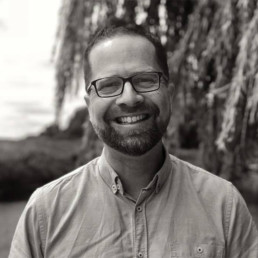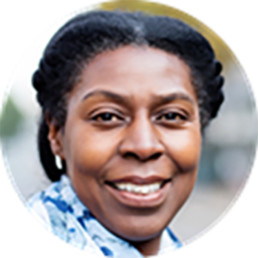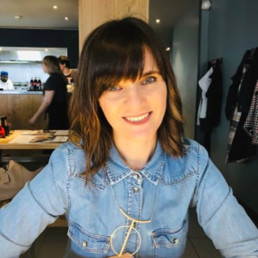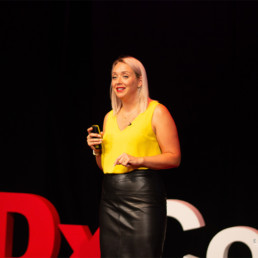Deepening and Demonstrating an Understanding of Diversity - A Governor’s Journey

Written by Mair Bull
Former teacher and content writer for BBC Bitesize. Now works at Manchester Metropolitan University in the Curriculum and Rise teams.
When the pandemic hit, I had only been a governor for a few months. Therefore, I felt compelled during the lockdown to take advantage of the many free webinars and training sessions that became available as everyone flocked to zoom and other similar platforms.
I particularly enjoyed the sessions by Hannah Wilson and Diverse Educators – the recordings can be found here if you wish to check them out. I made notes about diversity, inclusion, decolonising the curriculum and specific ideas for governance around diversifying the board and recruitment – to name but a few!
The style of the sessions meant they felt approachable and empowering – normalising the discussions around race, culture, identity and disability. In fact, the sessions made it clear it was strange not to be challenging and questioning the current position within our schools. This was galvanised only a few months later when the world witnessed the death of George Floyd and the subsequent Black Lives Matter campaign.
Alongside these experiences, I was privileged to be part of a conversation about the importance of building a representative Drama curriculum in schools with the Royal Court Theatre, as part of my previous role with Open Drama UK. Subsequently, the network published a really useful document for teachers on building a representative curriculum, which I highly recommend exploring.
During the governors meetings in 2020, I slowly felt more emboldened to ask those questions that Diverse Educators encourages us to pose; I triggered conversations about text choices and our curriculum, about the diversity and inclusion of staff and the recruitment process to our governing board, plus many more. As Hannah has said several times, it is uncomfortable to ask those questions, but they need to be posed. The status quo needs challenging.
In December 2020 we had an Ofsted training session for governors across the Trust, and I was fired a question about the Equality Act in a mock-interview set up. I felt uneasy answering in front of a large number of senior leaders and hugely experienced governors, but I was able to outline what we had achieved in school, the provocations we had discussed, and our plans for the future.
Then in March 2021, I experienced my first real Ofsted visit (virtual) as a governor. In my interview the importance of all that layering of knowledge and small but regular confrontations of the norm, felt acknowledged, important and relevant. I was able to talk about the value of diversity, inclusion, recruitment and curriculum with more confidence and power than I would have been able to a year ago.
Like every school, we still have a long way to go but it is important to acknowledge the evolution and development from where we were before. I am really proud of the lovely school where I am a governor and the crucial progression that has been made on the journey out of special measures. It is important that I am educated and empowered to keep challenging the school to be the best version of itself as it can be. I am only small cog, but we as governors do have the power to enact change and empower others, steadily but positively.
I am really pleased to say that we are now in a position to recruit new governors and are of course, determined to broaden the diversity of the board. If you are interested in a governance role in the Cheshire region please get in touch.
It is about time Initial Teacher Training and Education embraced diversity and inclusion

Written by Davinder Dosanjh
Executive Director Leicestershire Secondary SCITT
Thirty-five years in education as a teacher, senior leader, Her Majesty’s Inspector, senior lecturer, teacher educator, I had hoped we would have moved much further forward when we talk about Diversity, Equity and inclusion. I am still not seeing Initial Teacher Training and Education embracing the diverse voices and representing BAME. The decision makers and those on the working groups advising the Department for Education, are the same white faces, from the same organisations.
Policies and initiatives such as the Core Content Framework, Early Careers Framework, have missed opportunities to embed diversity. We are still wedded to the Teachers’ Standards. Teacher Standard 3 and Part 2 of the Teachers’ Standards make no strong statements about embedding diversity, equity and inclusion. The Core Content Framework and Early Career Framework opportunities have merely amplified the Teachers’ Standards into ‘Learn that..’ and ‘Learn how to..’ statements. Examples of systemic racism. These frameworks are a minimum entitlement, so they imply diversity is not part of that prerogative.
Those that train teachers are predominantly, white and middle class. I have been involved with teacher training at a university and a SCITT. Whilst working with both organisations I have asked and sought to be on national bodies which represent these sectors. Never managed to get through the red tape and procedures which maintain the institutional racism. I am just as qualified, have the experience and the track record. Still working out what I am doing wrong or to flip it the other way, what are these national organisations doing which perpetuate these barriers? You have got to be voted on, seconded and then your mates vote you in because you have had the time to network with them. Time to re-examine the criteria for national bodies, working parties, time to have a transformation, give others a voice.
If you have been on a national working group, advisory once, you are to be commended, then pass the baton onto someone else. Insist these groups are diverse and heard at a strategic level.
We need to undertake a more wide-ranging review at the trainee’s journey from pre-application, application, interview, the programme and actual training experience. We need to ask ourselves some critical questions. Then follow the sequence of auditing, action planning, accountability and assessing impact. A starting point are some self-assessment questions below:
Pre-application
Is the marketing diverse and showing a range of positive diverse role-models?
Are we appealing to a diverse range of communities, using a range of networks (Asian radio) not just the traditional career fairs, university, school events?
Application
Who interviews?
Are all interviewers trained beyond safer recruitment, such as Diversity training?
Do we interrogate the data? (those made an offer, rejected, reasons why)
Teacher Educator and Placements
Who are the teacher educators?
Are they diverse?
Can we talent spot and seek out diverse teacher educators?
Are we carefully matching the right teacher educator to the trainee?
How do we deal with any issues of discrimination?
Curriculum
What is the golden thread of Diversity, Equity and Inclusion?
Where is it? What is it?
Who is delivering/facilitating?
Are the role models diverse?
Do we share the mic and encourage allyship?
Evaluation and Quality Assurance
Are the trainee’s voices being heard?
What questions are we asking about Diversity, Equity and Inclusion?
Governance
Is the Steering/Partnership Group diverse?
How can we seek out colleagues from our partner schools to be part of the group?
Is Diversity, Equity and Inclusion a regular agenda item?
I would hope we have moved forward and that any teaching training provider, whether school or university could not ignore a trainee being called a ‘paki’ by pupils like I was. Despite me raising objections, I was told to get on with it, despite this being a regular occurrence. We have policies and procedures to formally report such incidents which were not in place when I undertook my training. More importantly, great communities such as Diverse Educators and BAMEed Network.
I am proud to say the Leicestershire Secondary SCITT has increased the diversity of its cohort from 29% in 2015 to 49% in 2020.
Education to End Violence Against Women and Girls

Written by Natasha Eeles
Natasha is the Founder of Bold Voices. She is a passionate advocate for the rights of women and marginalised genders.
The world young people are growing up in today is changing rapidly, bringing with it a need to think more broadly about the education young people require. In the past week the UK has had its eyes opened to the urgent need to challenge the seemingly harmless attitudes towards women and girls that contribute to a culture within which gender based violence is normalised and even accepted, a culture that unfortunately schools are not exempt from.
On Wednesday 3rd March Sarah Everad went missing while walking home in Clapham, south London. She had taken a well-lit, public route, she had called her boyfriend to let him know when she’d be home, she was wearing bright clothes and trainers. She followed all the unspoken ‘rules’ that women and girls follow to keep themselves safe, but it wasn’t enough. Since that day, Sarah’s kidnap and murder has sparked an outpouring of grief and exhaustion from women and marginalised genders across the country who are tired of being harassed, objectified and assaulted with little to no accountability for the perpetrators. The media coverage of Sarah Everad’s case coincided with the release of a UN Women UK report finding that 97% of young women aged 18-24 have experienced sexual harassment.
Unlike the #MeToo movement of 2017, the moment of the past week has not left young people behind. The Instagram account Everyone’s Invited has gained unprecedented traction, with thousands of school pupils and university students submitting their testimonies of harassment, abuse, assault and speaking to the rape culture that pervades within our educational institutions. As teachers and parents it can be difficult to know what to do in the wake of such a horrific outpouring from young people, how to keep them safe. But if this last week has taught us anything, it’s that to bring up a new generation who do not continue to perpetuate a culture of violence against women and girls is a number one priority.
HOW DO WE DO THIS?
THE ANSWER: EDUCATION.
Keeping our young people safe and healthy means ensuring they have the right spaces for learning about and discussing these issues. We appreciate that terms such as ‘gender based’ or ‘sexual’ violence can be challenging and daunting, or even extreme, particularly when it comes to discussions about pupils. But, as this past week has shown, young people are not protected from this violence and so we must ensure we move towards a preventative as opposed to reactionary approach.
At Bold Voices we’ve been delivering education on gender inequality and gender based violence to young people in schools and universities for three years. We’ve worked with over 2000 people through talks and workshops. We are a youth-led team who identify closely with the experiences young people face and understand the many influences that shape their beliefs and outlook on the world. Our education is designed to empower young people, both boys and girls, to see themselves as agents of change. We do this by approaching topics that are often uncomfortable and emotive with an objective, critical lens. In particular, our education focuses on challenging key attitudes and beliefs such as the perpetuation of gender stereotypes, dismissal of casual sexism as harmless and use of language that degrades and objectifies women.
This education is not a ‘nice-to-have’ addition to the curriculum. It is urgent, critical education required to keep young people safe and to disrupt the patterns of harassment, abuse and violence that have pervaded the lives of women and girls for centuries. Bold Voices are here to support you in becoming better equipped to have these conversations with your pupils, your children, and other educators and parents. As experts in delivering this critical education we have all the knowledge and expertise you need – resources, talks, workshops and a community where young people themselves can learn from each other and find support from others on this journey.
HOW CAN WE HELP?
Resources: Activities for the classroom, toolkits, blog posts and lesson plans for discussing gender inequality and gender based violence. Sign up to be the first to hear about new resources we create through our newsletter.
Talks and Workshops: Discover our talks and workshops, led by experienced facilitators and delivering on key topics relating to gender inequality and gender based violence including:
- Thinking Big About Gender Inequality: From Misogyny to Gendered Violence
- Preparing Our Teens for the Unspoken at University: Cultures of Gendered Violence within UK Universities
- Online Sexual Harassment: How Gendered Violence Adapts to New Environments
Delivering Gendered Violence Education: Sign up for early access to our self-paced online course for teachers supporting you to deliver this critical education.
Doing the Inner Work, to do the Outer Work

Written by Ellie Lister
Ellie leads the Big Leadership Adventure programme at Big Education. A multi-academy trust and social enterprise whose mission is to rethink and reshape education.
We have spent the weekend working with our 2020 Big Leadership Adventure group. It is always an energising and uplifting experience – as we learn together as part of their journey as leaders who believe in a ‘big’ education that can change the system. The commitment, passion and dedication of this group of 30 leaders can not be overstated. We salute you all!
The overall theme of the two days was Design Thinking – how can we re-imagine practices by using a range of tools which get us to understand problems differently and then go about solving them in new ways? Inspired by the work of Ideo, this powerful methodology has much to offer us in the sector.
As pupils return from lockdown, many more schools are looking to do things differently. Our leaders are all working on Innovation Projects that harness the learnings from lockdown, to help us to rethink and reshape education.
We know that we cannot achieve ‘a big education’ unless our system values and embodies diversity, equity and inclusion. Having some of the sector-leading experts and trainers as part of the cohort gave an incredible opportunity to draw on their expertise and really explore how this is explicitly linked to our work on the programme. We explored the themes of user-centred design, really actually listening to what those with protected characteristics are saying, and creating the spaces where those conversations can happen.
Adrian McLean and Hannah Wilson skillfully created a safe space for participants to learn, challenge and understand. It was so powerful to start with checking our knowledge of the equalities act – what are the 9 protected characteristics and how many can you name? Between the group we got there – but I for one would not have managed to get all 9 on my own.
We were challenged to think about which of these are visible in our organisations. Where are there explicit practices in our organisation in supporting or addressing these protected characteristics? It was clear that for so many of us, there is not an equal balance of focus on each of those within our organisations. There were some fascinating reflections on the ‘emotional tax’ associated with some of the invisible characteristics, for example disabilities that are non visible. Some areas of practice are much stronger than others, and it was powerful and, at times, very uncomfortable to delve into why this is the case. It was also fascinating to reflect on the difference between what is written in policies and what is actually happening which again can expose some uncomfortable truths. Adrian and Hanah recognised this and urged us to “get comfortable with being uncomfortable.” These reflections and conversations need to happen.
A large focus was on encouraging us to look inwards first. “Doing the inner work, to do the outer work.” This means we need to look personally inwards and consider our own perspectives, privilege and biases before we can meaningfully bring that conversation into our wider organisations. We used the Wheel of Power and Privilege as a tool to consider our own identity and experience and as a way to consider what might be going on for others.
We made an interesting link with our concept of ‘making entry’ – the idea that an essential prerequisite of meaningful work together in a trusting relationship, and that this is achieved only through self disclosure and sharing information about ourselves. It raises many questions about what we choose to disclose – how much, about what and to whom. What is clear is that if we do not tell our own story, others will make one up for us. Some of that story is based on what they can see – the visible characteristics – and some about assumptions they make. Whether we choose to inform them further is our choice.
What is also clear, however, is how powerful it is when people are open about aspects of themselves. We heard stories of the impact of staff sharing their sexual orientation with students and the transformation in attitudes this can enable, as well as safe spaces where students were empowered to be openly vulnerable and really challenge a culture of toxic masculinity.
The group all made pledges for actions to undertake and we will hold ourselves accountable for these commitments.
Day 2 shifted us into some practical action in developing our leadership skills – what we call developing ourselves as a ‘leadership artefact’. We passionately believe that being able to clearly and effectively deliver a ‘stump’ speech is a tool in the changemaker’s tool kit. The ability to convince others, create a compelling narrative and inspire action is essential. Our leaders revisited their stump speech they had delivered as part of the application process, redrafted it in light of the philosophy of education module they have completed, and delivered it to colleagues in small groups.
It was an incredible experience, for both those speaking and those listening and feeding back. Drawing on the 4 oracy strands as a framework for listening and observing, each leader then received detailed feedback about the impact their speech had had on others in the group. We were all reminded again of the power of feedback – such an important part of developing our self awareness and understanding the effect our behaviour has on others. We referenced the ever useful Johari’s window model as a framework where we consider what is known and unknown to self and others.
The energy, commitment and positivity from this group of school leaders, after the first week back at school, was quite a joy to experience. The power of the cohort and drawing on expertise and support from the group could not have been stronger. It is a pleasure to work with this group of leaders and the future feels a little brighter in their presence.
Are you passionate about the need for a holistic education for young people? Applications are open for the Big Leadership Adventure – closing at midnight on the 3rd of May: https://bigeducation.org/bla/
Gender is “wibbly-wobbly” and “timey-wimey”, and gloriously so

Written by Matthew Savage
Former international school Principal, proud father of two transgender adult children, Associate Consultant with LSC Education, and founder of #themonalisaeffect.
David Tennant’s regeneration of the Doctor, in exploring the conceptual complexity of time, explained to Sally Sparrow in 2007’s ‘Blink’, “People assume that time is a strict progression of cause to effect, but actually from a non-linear, non-subjective viewpoint, it’s more like a big ball of wibbly-wobbly, timey-wimey stuff.”
As the father of two transgender young adults, and a school leader of two decades who has worked with and supported hundreds of children and young people questioning, openly or indirectly, their gender or sexuality, I have increasingly learned that gender identity and expression, sex and sexuality, are no less “wibbly-wobbly” or “timey-wimey”. Indeed, the more we back them into a binary backwater, the less we will understand, respect and celebrate the rich diversity of the Genderbread Person who makes us who we were, who we are and who we will be.
My youngest child, Jack – born AFAB in 2001, identifying as queer when adolescence first hit, as dysphoric shortly afterwards, and as transgender when the adolescent rollercoaster was well underway – at 19, now counts his trans identity as but a tiny fraction of who he is. To him, he is an artist first and foremost; a gay man; a recipe non-conforming chef; and many other identities besides, like all of us. But just as he happens to be a trans male, he obstinately and understandably ticked “Male” as his sex on the recent UK census, even though his first gender reassignment surgery is still a couple of months away.
My eldest child, however, born AMAB in 2000, has recently come out publicly as trans-feminine non-binary, and, about a year previously, as “obnoxiously bisexual”. In doing so, she has embarked on a journey both of discovery and also of worn, lived and breathed gender identity and expression. She is as uncertain about her precise route and destination as she is certain both of her pronouns (she/her, or, at a push, they/them) and also of her name, Phoebe. With her bravery has grown yet further my awe and humility, and, with her wisdom, so also my desire to learn, and to continue learning.
Just as Jack has now acquired the toxicity of male privilege and the pungency of male bathrooms, so has Phoebe gained (bizarrely conditional) access to misogyny, gender inequality and an increasingly unsafe society. Both are emerging into an adult world whose hostile environment permits so many of those who know nothing and represent no one to speak loudest and most hatefully. Much as I love both my children unconditionally (what is conditional love, after all, but something hateful dressed in love’s robes?) and beyond words (even though, as an English graduate and teacher, and wannabe writer, words are my thing!), I fear for their futures.
As a result, I want to do everything in my power, heaping every ‘Teaspoon of Change’ and feverishly flying Maathai’s ‘hummingbird’, to help reshape our world, one which they have the bravery and beauty, but not the obligation, to transform, into a nurturing and safe space: for Jack, for Phoebe, and for every transgender, non-binary and gender non-conforming child, young person and adult in this rainbow realm.
In a few days, I will be delivering a presentation at ECIS’ “Diversity and Belonging” Leadership Conference 2021, entitled, “A Principal’s Journey: what I learned about inclusive school leadership from my transgender son”. The abstract argues that, “to identify as LGBTQ+ whilst studying at an international school can present a unique set of challenges, rendering the student especially vulnerable to mental ill health, poor wellbeing and disrupted learning”.
And I will aim candidly to share my experience as the proud father of a gay, transgender child, and how it has taught me to be a truly inclusive leader. But, in reality, this is Jack’s story, and it needs to be told. I am not a religious person (Jack and I both entered “Dudeism” on that very same census!), but Phoebe and Jack are miracles; and miracles deserve to be shared, as far and wide as possible. If I could reach the Doctor’s next regeneration, I feel confident they would share it wherever the Tardis can travel.
As Educators, What Do We Owe to Our Children?

Written by Rosie Peters
Rosie Peters has been in education for over 20 years and is currently working as a Co-Head of School. She is passionate about improving children’s life chances and strongly believes in the power of mentoring and representation.
As educators, what do we owe to our children? Surely it should be an education where each and every child feels represented within the education system and the curriculum.
An early-years setting that says welcome, I hear you and I see you, instantly communicates to the child that they belong. In turn the child recognises and sees familiarity within the physical environment, the faces they encounter, the words that they hear.
For a child that has little English, a simple hello in their first language can make a world of difference. Books opened and read aloud, bridge reality with the imaginary with ease because someone has taken the time to check there is true representation of the children entrusted to them as they embark on what should be a wonderful adventure of education, full of excitement and discovery.
We want all our young people, regardless of colour, class religion, gender or ability to experience a shaping of belonging and identity that is positive, clear and authentic. We are responsible for shaping their views and attitudes of self and others.
Pupils should be made aware of the true contributions made by their ancestors and the ancestors of their diverse peers.
Starting with a Primary History curriculum that gives the full story by bringing back the erased and forgotten: the Aurelian Moors who were Roman soldiers based in Britain; the Ivory Bangled Lady; Septimius Severus a Roman Emperor. ‘We can be certain that people from Africa lived here more than 1,700 years ago.’ (Black and British, a Short Essential History; David Olusoga 2020.)
In history wonderful websites such as ‘Another History is Possible’ or ‘Meanwhile Elsewhere’, gives insight to other equally important global events that took place at the same time as the eras covered in the national curriculum.
A curriculum that allows different perspectives to be taught – from the point of view of, for example, race, gender, class, religion, disability and age, would give a strong message that diversity is not only accepted but essential.
A curriculum that develops and champions critical thinkers who are able to question, to ask why, is essential. Why, for example, during the VE Day celebrations in the summer of 2020 Black and Asians soldiers were barely mentioned. Why, in certain professions, there is little or no representation from non-white communities.
Let’s empower young people by ensuring that the curriculum and experiences they encounter are reflected through the role models we choose, the places we focus on and the cultural connections we celebrate. There is no subject in which diversity and inclusion cannot be embedded and made the norm. With a bit of time and effort it is amazing what can be achieved.
Educators need to be supported and provided with CPD to enable them to become ‘racially literate’ and able to talk openly about racism; in other, words not shy away from uncomfortable discussions. They need to be aware that terminology is forever changing and that it is better to ask someone what they prefer to be called: Black, Black British, Black Caribbean, Roma or Romani … rather than avoid it.
Teachers that go all out to make sure that someone’s name is pronounced correctly show children that their name is important; it is part of their history and culture. ‘It is not the first mispronunciation that stays with the student, it is the failure to learn how the name is pronounced and then the continued incorrect pronunciation on the second, third, fourth attempt. The unfortunate consequence, witnessed first-hand, is that students with names from different backgrounds start to hide their names. Their pride in their own heritage is eroded. (Diversity in School, Bennie Kara 2021)
We all have the responsibility to engineer change. Lack of knowledge of different people causes a lack of trust, fear, conflict and animosity. Educators need to be instrumental in changing society in a meaningful way.
The pandemic has highlighted the inequalities that exist in our society and the mistrust that some communities have in our institutions such as the justice system, the police and the medical profession. This is built on decades of negative experiences and unfair treatment endured by marginalised communities. One only has to look at key data sighted in the Office of National Statistics 2017/18:
- Fifty-five percent of Black Caribbean pupils achieved the expected standard in reading, writing & maths (The lowest percentage out of all ethnic groups after White Irish Traveller and Gypsy Roma pupils.)
- Three times more likely to be permanently excluded than their white peers.
- Forty-five percent of Black Caribbean live in rented social housing, compared with 16% White British (2016/17)
- Black Caribbean women are five times more likely to die in childbirth than their British counterparts.
This lack of trust can have a devastating impact on minority groups. A prime example can be seen in the low rate of uptake for the COVID-19 vaccine amongst the Black and Asian communities. This surely has to change.
We need to come together and work for the common good. It should not be the responsibility of one community, usually the community being most affected. It has to be the responsibility of everyone; the majority: white allies, working alongside the minority.
Wouldn’t it be wonderful to produce children who have a full sense of belonging; knowing where they have come from and where they are going and, in equal measure, hold the same knowledge of their diverse peers.
Imagine if this were the reality, there would be less racism, prejudice, unconscious bias and the inequalities we see today.
Agency would be for all and not the chosen.
The decision makers of tomorrow would mirror the richness of society’s diversity and therefore decisions on a local and global scale would recognise and address inequality and bring equity where required.
Some educators have already started this journey; a journey we should all embrace in order to bring into being a more equal society for our children, the leaders of tomorrow.
The green shoots of change can already be seen. Let’s hope they fully blossom.
Teaching is a great profession especially when we recognise that education is a powerful vehicle for creating better human beings.
Menopause in Education - The Impact on the Teaching Profession

Written by Sharon MacArthur
Owner of Red Handbag. She works internationally with leaders in business, helping them to develop their leadership confidence though more effective communication strategies.
According to recent government figures, three quarters of teachers are women, so why is support for those in the profession who are going through the menopause glaringly lacking?
The average age that a woman reaches menopause is 51, but symptoms can start much earlier. Women over 50 are also the fastest growing workplace demographic and many women working in education are in senior leadership positions by this stage in their careers.
While all women go through menopause, some will have a more difficult time of it because of the nature of their job role. Teaching is no exception.
How will a female teacher suffering from menopause-related anxiety cope in such a physically and mentally-demanding school, college, or university environment?
How will menopause-related fatigue and problems concentrating fare against dealing with problem pupils, excessive workloads, and strict deadlines?
What about heavy and unpredictable periods? Hot flushes? What if you can’t just up and leave the classroom if you need to?
Some women’s menopause symptoms are so severe that they either need time off from work or questions get asked about their capability to do their job.
Sadly, support from managers, even female ones, is often not forthcoming.
The result is many wonderful educators feel they have no choice but to leave their role, which is very sad, considering that getting there is the culmination of a lifetime’s work for many women in the profession.
Can the teaching profession afford to lose such highly-skilled and valuable teaching talent? That’s what could happen if schools, colleges, and universities don’t become more menopause friendly.
What can be done to better support female educators who are going through menopause?
There’s no getting away from it, teaching is a physically, mentally, and emotionally demanding job at the best of times, so when it comes to menopause, we can’t just sweep it under the rug.
When I deliver menopause training to an organisation, I always make a point of saying that menopause should be business as usual. While there are some really positive signs that it’s being talked about more openly, it’s still a bit of a workplace taboo.
Women are still suffering in silence, and considering leaving their jobs, which is bad news for a profession like teaching which struggles to recruit and retain talented staff.
So what can be done?
- The first step is talk about it. Raise awareness about menopause, bust the myths, and make it everybody’s business. The goal should be to create a menopause friendly workplace where women feel comfortable talking about how it’s affecting them and where they are able to ask for advice and support.
- If your workplace doesn’t have a comprehensive menopause policy, put one in place that will meet the needs of women going through menopause as well as providing straightforward guidance for their line managers.
- Speaking of policies, make sure your sickness absence monitoring policies and arrangements don’t lead to the detrimental treatment of women who need time off for menopause-related reasons. Similarly, bear this in mind where absence and a symptom-related decline in performance can affect things like pay progression.
- Improve awareness of menopause across all levels of the workforce, particularly at leadership level.
- Make reasonable adjustments to support women going through menopause.
Some reasonable adjustments your organisation could and should make:
- Allowing toilet breaks during lessons where necessary.
- Providing sanitary products in staff toilets.
- Providing a place to shower and change if necessary.
- Considering flexible working requests such as reducing hours or allowing some work to be done from home to help women manage their symptoms.
- Providing access to cold water and allowing employees to control the temperature of their working environment if possible.
Menopause in the national curriculum
The government has added menopause as a topic to be covered on the sex education curriculum in secondary schools. Surely schools that are menopause aware and menopause friendly will be better placed to give pupils a broader and more enlightened view of the topic?
And it all needs to begin with how they support their own staff.
My mission
Raising awareness about the menopause among people and employers is all about education and making it comfortable and acceptable for people to speak about it. Menopause is not a condition to be treated and cured, it’s a normal stage of life that every woman goes through. Helping people to realise this is my mission.
My training events are aimed at educating HR professionals, managers, and workers about the menopause in a fun, engaging, and informative way.
If you’d like to find out more, contact me at sharon@missmenopause.co.uk
You can also join my Facebook group or my Facebook and Twitter campaign
Claim the Room

Written by Annemarie Williams
Executive Head Teacher of Humberstone Infant Academy and Humberstone Junior Academy, where she has been Headteacher / Executive Head Teacher for 12 years.
I’m going to start this with a disclaimer. Because I feel like right now there is a lot of highly expressed emotions and publicity around the issues I’m writing about. Many people will have an opinion and this is mine.
Last weekend I was proud to be part of the online celebrations for International Women’s Day – last night I lit a candle for the horrific crimes against Sarah Everard and cried. I woke up to some of the most distressing and brutal photographs from the vigil that was held in her name. In between this, I watched a woman admit to an international TV audience that she felt so overwhelmed by her treatment in the media and by an institution, that she had thought about taking her own life. I have spoken to friends, family, colleagues and the overwhelming feelings are the same. Women are expressing their sadness and anger and the sense of powerlessness that they have felt in so many of these situations. The lack of power in preventing crimes like these, the lack of power in challenging the institutions responsible and the lack of power in affecting meaningful change.
I’m a mother, a daughter, a niece, an auntie, a best friend, a leader and proud to have been a regional leader within the #WomenEd community for 5 years. I’ve spoken to women of all ages and stages in life and each and everyone of them has a story about being followed home in the dark, shouted at in the street, groped in nightclubs, patronised and interrupted at work and called names on social media because of their body shape. It is heartbreaking.
I do not attempt to speak for all women but it seems to me that many women who were taught to take a seat at the table…now realise that they will always be sitting on the chair with shorter legs because equality and equity are not the same thing. It’s not enough to have a seat at the table if you don’t feel that your voice is heard. And really to be genuinely listened to and heard is what many women are asking for. In their statements for the media today, the spokesperson for Reclaim the Streets spoke repeatedly about women wanting to be heard and about the need for constructive discussion and dialogue.
Brene Brown speaks of the difference between “power over” and “power with” and this is the bones of what many women experience on a daily basis. “Power with” can only happen if the people at the table acknowledge their position of privilege and actively and deliberately seek to change the status quo. In this case that means men doing more to address the issues at hand here. In my life I am fortunate to have some truly wonderful, brilliant, enlightened and courageous men who have absolutely and sensitively tried to conduct themselves like the brothers and allies women need. But there still feels like there is more to do. I know that these are the men who would intervene in the case of a woman being harassed in the street, or call out an inappropriate joke in the office or challenge the use of sexist language in the locker room. But there’s more subtle forces at work than this. It’s more than calling out bad behaviour – we need men to actively demand better behaviour and not because they are husbands, fathers and brothers, but because it is the right thing to do if we believe in a fair and equal society.
This is challenging and requires an active and deliberate awareness. It is almost asking too much – to feel the day to day experience of being a woman. The theme for International Women’s Day this year is #choosetochallenge. Women all over the world are providing that challenge but it is not enough if men do not do the same. So what could this proactive stance look and sound like?
- Questioning the diversity of a panel that you are asked to speak on
- Asking what the diversity and inclusion policy is where you work
- Offering to give up your space at an event for someone who would benefit from the opportunity
- Initiating open conversations with women about their experiences of everyday sexism and being prepared for the fact that this might feel uncomfortable
- Insisting that recruitment is transparent and that there are no secret backdoors to get that seat at the table
- Providing opportunities for women to have open discussion, forum groups and other ways of giving anonymous feedback
If we want things to change then there needs to be an acknowledgement that this is an active and proactive process and if you are not willing to help find the solution, then you are probably part of the problem.
Culture Vs Performance Scrutiny? Which is most important for a governing board to get right to fulfil its strategic role on race?

Written by Dominic Judge
Director of Governance Programmes at Inspiring Governance
The recent Diverse Educators series on Diverse Governance has got me thinking. The recurring theme is that developing the right culture in your governing board is the most critical step to getting equality and diversity right in your school. If you like… ‘culture eats strategy for breakfast’. But are there other ways of tackling racial inequality?
I’ve been a continuously serving governor for the last 15 years in a variety of school and catchment contexts. I’ve also been a Diversity Training Manager in the police after the tragic murder of Stephen Lawrence and worked at the National College for Teaching and Leadership, not least leading a range of work to diversify senior school leadership.
From what I’ve seen in all these contexts, culture is critical in successfully addressing racial inequality. A culture of leadership, personal commitment, brave discussion and a collective willing of boards and decision makers to educate and self-examine themselves in order to move forward.
However, my experience has shown me that it is also about fundamentally ensuring race equality is elevated front and centre of organisational performance too. This means that race equality is on agendas, data is sought and scrutinised, actions are taken (and funded), and outcomes/ performance are scrutinised and challenged as forensically as any other element of performance. A good culture means this is easier to do but it can be done as the right culture is being developed.
In one of my roles I remember taking on a major programme to develop a pipeline of headteachers. One of this programme’s sub projects (the ‘diversity project’) was unfunded and described to me as an ‘influencing project’. Not surprisingly it was not under the same level of scrutiny as the others and consequently not achieving as much as them.
This is exactly my point; we won’t make the progress we need to without the high scrutiny and funding of action that goes along with other areas of organisational/ school performance. Within months I ensured it was six-figure funded and scrutinised for its’ performance and progress by the overseeing programme governance board as keenly (if not more) as any other project we were undertaking.
So, if tackling race inequality in schools is to be scrutinised as forensically as any other area of school performance, what are some of the questions governing boards need to be asking themselves?…
7 main areas to consider:
- Pupil achievement/ attainment – Does the governing board regularly interrogate the school’s attainment data against ethnic category data. Are there markedly different SATs/ GCSE/ A-Level outcomes for different student groups? Why is this? What are we doing about it? How is the current Covid exam grading approach playing out across our diverse students?
- Racism – My own experience of governance tells me that reported racist incidents to governing boards are very low, but a TES pupil survey last spring reported a third of pupils had seen/ heard racism in their school. So, behind the monitoring of RIs, how are governors assuring themselves that their school is tackling racism and educating students about it? Do all their students feel included, protected, and supported to achieve their academic best?
- Exclusions and behaviour The Timpson Review rightly shone the spotlight on pupil exclusions and if you have ever sat on an exclusion panel you will know the magnitude of the decision you are being asked to make. But as a collective board, governors need to monitor exclusions (and for that matter general behaviour sanctions) by ethnic category data – what is the pattern showing? how do they have safeguards/ checks and balances in place to understand and counter any uneven outcomes?
- School workforce data and approaches – Are governing boards reviewing their own composition? Are they reviewing the make-up of their SLT, their teaching staff, their ancillary staff? This is not advocating a call for positive discrimination but ensuring that the governing board is asking questions about the strategic approach to recruitment and development in the school.
- Broad and balanced curriculum – Governing boards have a strategic role to ensure the school is delivering a broad and balanced curriculum. So, are governors confident the school is offering a balanced curriculum, relatable and accessible to all students from all backgrounds? If an academy, how are they ensuring their curriculum freedoms motivate all pupil groups in the school?
- Policies (e.g. uniform) – How are maintained governing boards and trusts reviewing and signing off policies? Are these policies unwittingly leading to indirect discrimination in their outcomes and unevenly associated disciplinary action because of these – e.g. Black hairstyles
- Destination data – Governors of secondary schools should be strategically scrutinising the destination data from their schools. Where are their students from different race and ethnic backgrounds going after they leave school? What does the data say on those progressing to further or higher education, employment, what does our NEET data tell us?
Good schools and governing boards will already do much of the above and more. They will have developed their culture and have clarity for the school’s vision and ethos on race. But if some schools are working hard to develop their culture then it’s helpful to remember that part of the governing boards’ strategic role on race is to hold the school executive to account for the educational performance of all its pupils. For success and change, culture and performance scrutiny need to go hand in hand.
Engage, Educate, Empower Mantras for Inclusive Leadership

Written by Hannah Cotton
Founding director of Inclusive Leadership firm, EquALLIES and promotes global inclusion on Twitter under #FFBInclusion.
I’ll confess, I’m getting a little sick of the three word mantras. I’ve come to liken them to vacuous cross-party political promises and safety-critical health advice alike. They’ve been over-used, over-simplified and under-estimate the intelligence of many to accommodate more.
But I’m also a realist, relying heavily on my analytical skills to draw conclusions that support facts. So, somewhat reluctantly, I acknowledge that three word mantras are highly effective at delivering a message. They are effective at activating people to change.
All else being equal, what’s required for change?
Our need to learn how to change has never been greater. Be it covid, Brexit, inequalities and social injustice or climate change, we must all grapple with the “new normal’; and that means change. Maybe it’s just at the fore of our thoughts as we find this “new normal” may be so significantly removed from the old.
Change is constant. Risks change, rules change. Priorities, processes and systems change. Change is not tied to global pandemics or social injustices. None of it needs a rising of the people, form T216 or social media. If the driver of a deadly efficient biological virus has taught us anything, it surely must be that.
Many I move amongst embrace change lovingly; change is opportunity, growth and progress. Through discussion, I’ve found most with this perspective draw from negative experiences of a need to change to reach this conclusion. Many have grown through change linked to pain; loss of a family member, loss of a job, loss of safety or health, or recovery from addiction.
Experience of the process builds confidence in change management. With knowledge and understanding, we can lead others with positivity to not just face change, but also to identify opportunities for change, and how to promote it. The drive to build on past improvements spurs the next, and shared enthusiasm facilitates taking others on the same journey.
There are also those that I recognise approaching change with a different mindset; when one equates change with fears of the unknown and loss of a comfort blanket.
However, let me clearly state at this point, there is a huge difference in those who require routine and consistency and those resisting change. Neurodiversity is not a problem to be moulded into homogenous thinking. Neurodiversity is a positive example of ‘different’ that we require change to embrace.
So, with over 100 years of collective experience in cross-industry leadership, psychology, business and cultural expertise, EquALLIES have defined this three word mantra to effectively manage meaningful, inclusive change. We’ve worked hard to condense our knowledge to provide the skills, learning, experiences and opportunities to lead oneself, and others, progressing the individual, their workplaces and communities.
We go beyond the protected characteristics to embrace all stakeholders, including socio-economic, social capital and geographic inequalities. After all, diversity is nothing without inclusion, and inclusion is impossible when it excludes.
Engage: Get Ready To Work
Engagement combines the need to inspire someone to do something. EquALLIES understands that means leading ourselves to change and also leading others.
No-one is absolved from action. Ask yourself some questions;
- Why? Define your purpose. Understanding the reasons for change will be key to keep you focused and motivated when times are tough.
- What? Define your goals, plan a course of action, understanding risks and measurable outcomes. This will keep you on track for delivery.
- How? Outline the resources you will require to achieve your goals. Knowing your strengths and your barriers to achievement will help you source the services, products and collaborators for success.
For example, in the context of school, where the goal is learning, we have two cogs; pupil and teacher. To engage, the pupil may prepare for the year with a new uniform and pencil case, but without corresponding resources from the teacher, their shared goals will be destined to fail. There is a requirement for individuals to prepare for cohesion and collaboration to address the issue at hand.
Educate: Do the Work!
Once you have engaged yourself, employed the resources you need to move forward towards a shared goal you must get ready to grow. Becoming mindful of yourself, knowing what growth feels like, how you address challenging situations and how to approach new ideas will be key. When you understand your own learning style, you can then do the work to improve your knowledge. This is when education yourself leads to educating others.
Empower: Get to Work!
Once the individual and collective are engaged and educated, it’s time to act.
Understanding barriers to action will include the process of liberating yourself from inaction, apathy or denial. Empowerment gives you the tools to challenge yourself, and others from issues that may be deeply ingrained, have formed bad habits and institutionalised ways of thinking. Enabling you to remove these barriers and act on behalf of yourself, and others, can safely be used towards realising your individual and collective goals.
Conclusion
For one to change, one must be able. Having the confidence to be you and to know your authentic brand of leadership is important. Having a network to support you, to inspire, to share successes with and to draw from when further strengths are required is important. Having a safe space and opportunity to practice your skills and reflect on your learning are important.
Mantras may not always hold the detail we need to effect change. However, if they grab your attention and engage the individual enough to learn how to act on them, the journey transcends the need to re-skill in future. By focusing on understanding self AND others, the fear of change, of loss and exclusion are replaced with practicing what we so often preach.
Individually important but collectively successful, Engage > Educate > Empower is the three word mantra embracing leadership, diversity and inclusion.

